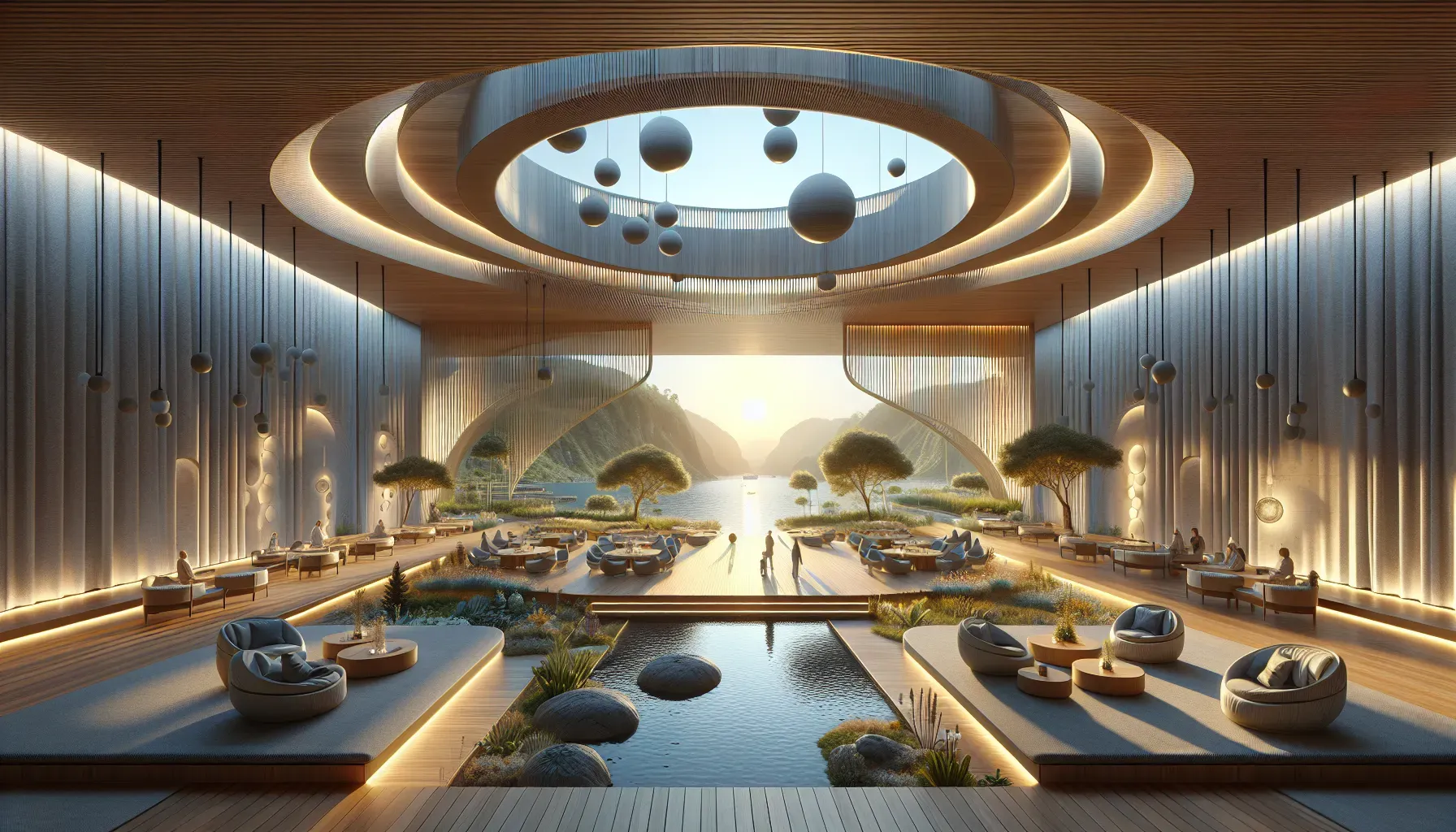Crafting Sanctuaries: The Compassionate Architects Behind Therapeutic Spaces for Special Needs Families

The architects pioneering therapeutic interior design are redefining the concept of home for special needs families. Their creations go beyond mere practicality, seamlessly integrating beautiful aesthetics with essential functionality. By understanding the challenges and unique requirements of these families, they are crafting spaces that not only cater to individual needs but also foster a sense of belonging and comfort.
Meet the Visionaries of Therapeutic Design
Therapeutic interior design has transcended traditional concepts, evolving into a pivotal force in redefining daily life for special needs families. With a focus on innovation and inclusivity, these architects are introducing groundbreaking solutions that go beyond the conventional adaptations like ramps and rails. The seamless integration of assistive technologies, sensory rooms, and spatial enhancements is revolutionizing the living experience for these families.
Reshaping Daily Life for Special Needs Families
The architects at the forefront of therapeutic interior design are pioneering innovative solutions that alleviate everyday challenges faced by special needs families. From adjustable furniture to intuitive lighting systems, their designs are offering practical and elegant remedies to common obstacles. Every element is carefully curated to blend seamlessly into the overall aesthetic, ensuring that functionality never compromises beauty.
Innovative Solutions for Everyday Challenges
Sensory rooms play a crucial role in providing a safe haven for children with autism. These dedicated spaces are thoughtfully designed to offer sensory stimulation or relaxation, tailored to meet each child's specific needs. Specially curated tactile experiences, soothing visuals, and calming sounds create an environment that encourages emotional regulation and promotes overall well-being.
The stories of families transformed through thoughtful design stand as testaments to the profound impact of therapeutic interior design. Through innovative solutions that perfectly balance beauty and utility, these architects are creating spaces where every family member can thrive. This transformative approach goes beyond addressing immediate needs; it cultivates an environment where individuals can truly flourish.
What Are Sensory Rooms and Their Importance?
The future of inclusive home design lies in the hands of these trailblazing architects who are continuously expanding the horizons of therapeutic spaces. Their insights shed light on the evolving landscape of architecture, emphasizing the importance of creating homes that cater to diverse challenges without compromising on elegance and style.
Balancing Aesthetics and Functionality
Therapeutic family homes also play a crucial role in supporting caregiver mental health. By providing spaces that are tailored to minimize stress and promote ease of caregiving, these architects are empowering caregivers on their challenging journey. The ripple effect of their designs extends beyond the physical space, nurturing an environment where caregivers can thrive alongside their loved ones.
Insights from Leading Architects in the Field
From concept to reality, the process of creating therapeutic family homes involves meticulous planning, empathetic understanding, and unwavering dedication. Every decision is made with the well-being of the family at its core, ensuring that the final creation is not just a house but a sanctuary that nurtures hope and resilience.
In celebrating these compassionate architects, we acknowledge their pivotal role in paving the way for a more inclusive world. Their dedication goes far beyond blueprints and design sketches; it resonates with empathy, understanding, and a commitment to creating spaces where every individual feels valued and embraced.
Frequently Asked Questions
Sensory rooms are specially designed spaces that provide sensory stimulation or relaxation tailored to the needs of children with autism. These rooms feature curated tactile experiences, soothing visuals, and calming sounds to help promote emotional regulation and overall well-being, creating a safe haven for children to thrive.
Therapeutic family homes are designed to minimize stress and promote ease of caregiving, which is crucial for supporting caregiver mental health. By creating spaces that cater to the unique challenges caregivers face, these homes empower them to thrive alongside their loved ones, fostering a nurturing environment for everyone involved.
Architects in therapeutic interior design implement innovative solutions such as adjustable furniture and intuitive lighting systems. These elements are carefully curated to blend functionality with beauty, addressing everyday challenges faced by special needs families while ensuring that the overall aesthetic remains appealing and harmonious within the home.
Check Out These Related Articles

Raising Eco-Conscious Kids: Nurturing Environmentally Friendly Habits

Building an Eco-Friendly Nursery: Safe and Sustainable Choices for Your Baby’s Space

The Green Parenting Guide: Building an Eco-Friendly Family Legacy

